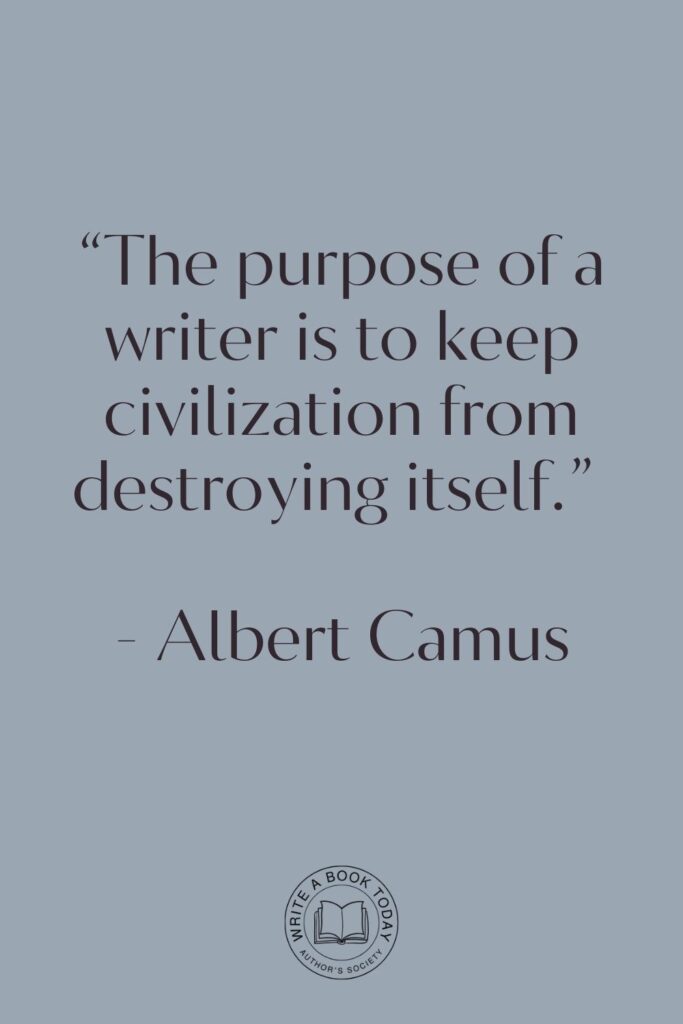Have you ever wondered how long does it take to write a book? You might be surprised to learn that it can take anywhere from a few months to several years. The romantic notion of an author typing away in a cozy nook and emerging with a finished masterpiece is often far from reality.
Writing a book is a complex journey filled with unexpected twists and turns. In this blog post, we’ll explore the true timeline of writing a book, uncover the factors that influence the process, and share practical tips to help you speed up your own writing journey.
The Surprising Truth: How Long Does It Really Take to Write a Book?
Many aspiring authors start their journey with a set timeline in mind, only to find themselves caught in the web of creativity and logistics. On average, writing a book can take anywhere from six months to a year, but for some, it stretches into years of dedication.
The truth is, the time it takes to write a book is as unique as the story itself. Just like a painter may spend months perfecting a single stroke, an author may spend countless hours crafting the perfect sentence.
Debunking Common Myths About Book Writing Time
One of the most persistent myths about book writing time is that it can be done quickly if you’re truly talented. However, even the most skilled authors often find themselves grappling with writer’s block or plot holes that require time to resolve.
The idea that a book can be written in a month is often a result of misunderstanding the depth of the process. While National Novel Writing Month (NaNoWriMo) challenges writers to draft 50,000 words in 30 days, this is merely a starting point for many.
Don’t be discouraged by the myth of the “overnight success.” Most authors have spent years honing their craft before achieving recognition. Focus on the quality of your work rather than the speed at which it’s completed.
No marketing platform? No social following? No problem!
Publisher Rocket helps you market your debut novel like a pro.
It’s a gamechanger for debut authors – try it today!


Statistics That Might Shock You
According to a survey conducted by the Authors Guild, the median time for authors to write a book is about seven months. However, this varies greatly depending on genre, with nonfiction often taking longer due to research demands.
In another survey, only 3% of writers reported finishing a book in less than six months. This data highlights the importance of patience and persistence in the writing process.
| Genre | Average Writing Time |
|---|---|
| Fiction | 6-12 months |
| Nonfiction | 12-18 months |
| Memoir | 12 months |
Factors Influencing Book Writing Time
Several factors can influence how long it takes to write a book. Understanding these can help you identify where you might need to adjust your approach. From personal writing habits to the demands of research and revisions, each element plays a crucial role in the timeline.
Personal Writing Habits: What Works for You?
Your writing habits are like fingerprints—unique to you and essential in determining your writing pace. Some authors thrive on writing daily, carving out a dedicated time each day to put words on paper.
Others may find inspiration strikes sporadically, leading to bursts of creativity followed by lulls. It’s crucial to recognize what works best for you and stick to it. Establishing a routine can create a rhythm that propels you forward, even when motivation wanes.
Experiment with different writing environments to find what sparks your creativity. Some writers produce their best work in a bustling café, while others need complete silence. Don’t be afraid to switch it up until you find your ideal setting.

The Role of Research and Planning
Research and planning are the backbone of any well-crafted book, particularly in nonfiction. Dedicating time to thorough research not only enriches your content but also ensures accuracy and credibility.
Creating an outline or a storyboard can guide your narrative and prevent getting lost in the weeds. While these steps may seem time-consuming, they often save time in the long run by providing a clear roadmap.
Consider the balance between planning and spontaneity. Too much planning can stifle creativity, while too little can lead to a chaotic draft. Striking the right balance will help streamline your writing process.
Editing and Revisions: The Hidden Time Sink
Editing is where the magic happens, transforming a rough draft into a polished manuscript. However, this stage can also become a time sink if not managed carefully.
Revisions often require multiple rounds of feedback, rewriting, and refining. This is where patience becomes paramount. Remember, even bestselling authors rely on professional editors to fine-tune their work. Embrace the editing process as an opportunity to elevate your writing.
- Schedule regular editing sessions to break down the task into manageable parts.
- Seek feedback from beta readers or writing groups to gain fresh perspectives.
- Set specific goals for each editing session to maintain focus and productivity.
Tips to Speed Up Your Book Writing Process
While writing a book is a marathon, not a sprint, there are strategies to help you maintain momentum and reach the finish line sooner. By setting realistic goals, creating a sustainable routine, and leveraging technology, you can accelerate your writing process without sacrificing quality.
Feeling lost with your debut novel?
Fiverr Pro connects you with expert editors, designers, and marketers – everything you need to get your book ready for success!

Setting Realistic Goals and Deadlines
Goals are your guiding stars, keeping you on track and motivated. Setting realistic, achievable goals can prevent burnout and ensure steady progress.
Break down your writing project into smaller milestones, such as word count targets or chapter completions. Establish deadlines for each milestone to hold yourself accountable, but be flexible enough to adjust them as needed.
Use a calendar or planner to map out your writing schedule. Visualizing your timeline can help you stay organized and committed to your goals. Celebrate small victories along the way to keep your spirits high.
Creating a Writing Routine That Sticks
A consistent writing routine is the cornerstone of productivity. Determine the time of day when you feel most creative and alert, and dedicate that time to writing.
Whether it’s early morning or late at night, consistency is key. Protect your writing time from distractions and treat it as a non-negotiable appointment with yourself.
Consider incorporating rituals into your routine to signal your brain that it’s time to write. This could be as simple as brewing a cup of tea or listening to a specific playlist. Over time, these rituals can condition your mind to enter a creative state more easily.

Leveraging Technology and Tools for Efficiency
In today’s digital age, technology offers a plethora of tools to enhance writing efficiency. From word processors with distraction-free modes to apps that track your writing progress, the right tools can make a significant difference.
Consider using project management software to organize your notes and research, or grammar checkers to streamline editing. Embracing technology doesn’t mean sacrificing creativity; rather, it can free up mental space for more imaginative thinking.
Real-Life Stories: Authors Share Their Experiences
Every author has a unique story to tell about their writing journey. Hearing from those who’ve walked the path before can provide invaluable insights and inspiration.
Here, we delve into the experiences of authors who’ve faced unexpected challenges and emerged victorious.
Google Docs is for notes. Scrivener is for novels. Upgrade your writing game and try it for free today!

Unexpected Delays and How to Overcome Them
Even the most meticulously planned projects can face unexpected delays. From personal emergencies to sudden shifts in inspiration, authors often encounter roadblocks.
The key is resilience and adaptability. When faced with delays, reassess your goals and adjust your timeline. Remember, the journey is as important as the destination.
Take inspiration from J.K. Rowling, who faced numerous rejections before Harry Potter became a household name. Her persistence in the face of adversity is a testament to the power of perseverance.
Success Stories: From Idea to Published Book
Success stories abound in the literary world, each a testament to the rewards of dedication and hard work. Consider the journey of Stephen King, who wrote his first novel, “Carrie,” while working as a teacher. His story reminds us that even amidst life’s demands, passion and commitment can lead to extraordinary outcomes.
Similarly, Elizabeth Gilbert’s “Eat, Pray, Love” was born from a personal journey of self-discovery, proving that authentic experiences can resonate with readers worldwide.

Join the Conversation: Your Writing Journey Matters!
Your writing journey is unique and valuable, contributing to the rich tapestry of storytelling. Engaging with fellow authors can provide support, encouragement, and new perspectives. Whether you’re a seasoned writer or just starting, your voice matters.
Share Your Story in the Comments
We invite you to share your own writing experiences in the comments section below. Whether you’ve faced challenges, achieved milestones, or have tips to share, your insights can inspire others on their writing journeys.
Let’s create a community where we learn from each other and celebrate our successes together.
Engaging with Fellow Aspiring Authors
Connecting with other writers can provide motivation and camaraderie. Join writing groups, participate in online forums, or attend local writing workshops to meet like-minded individuals. Sharing ideas and experiences can spark new inspiration and help you stay committed to your writing goals.
Remember, every great author started as an aspiring writer, just like you. Embrace your journey, and don’t be afraid to reach out for support and collaboration.








